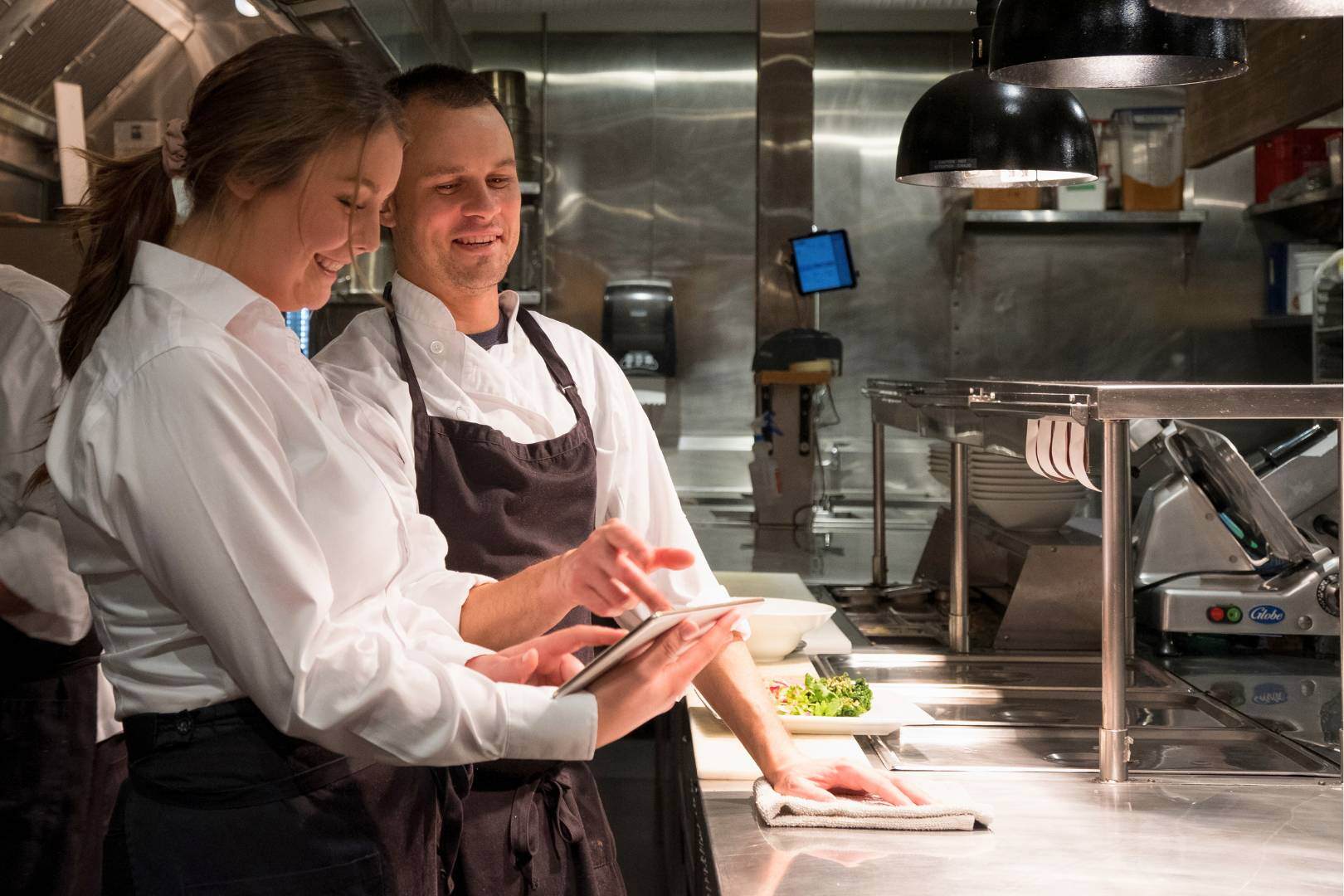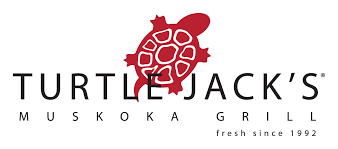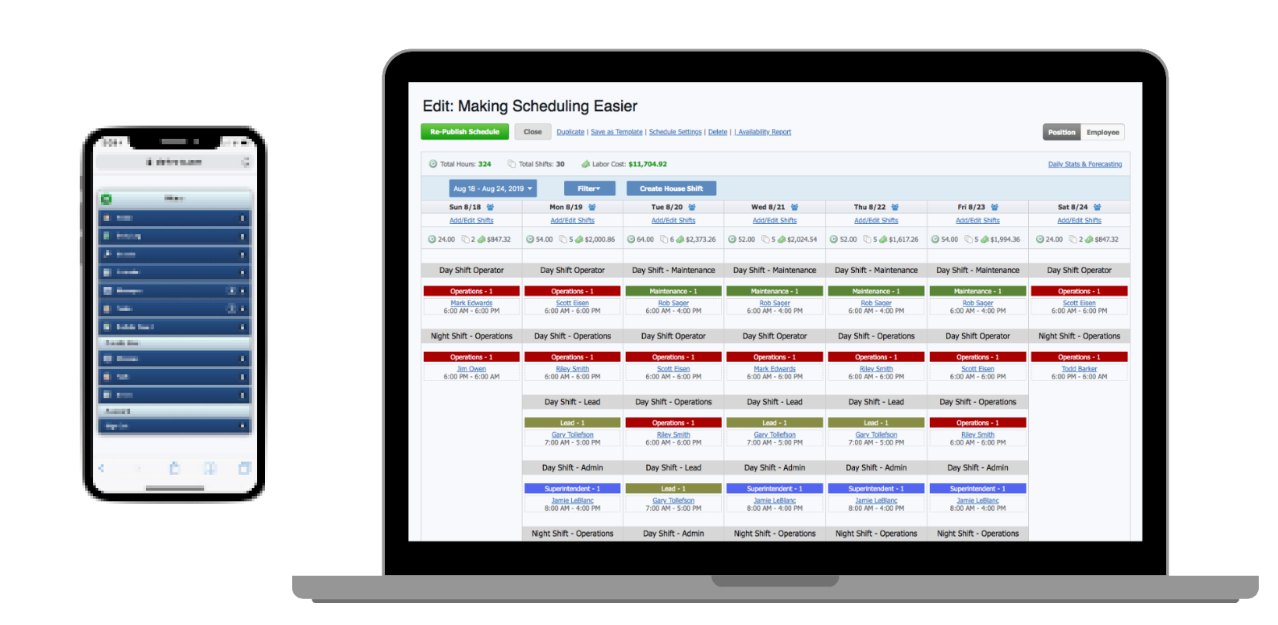

Mastering Employee Scheduling
Welcome to our comprehensive guide on mastering the art of employee scheduling.

Overview
Employee scheduling is one of the most critical aspects of managing a shift-based business. Whether you run a restaurant, hotel, or manufacturing facility, effective scheduling ensures optimal labor costs, satisfied employees, and smooth operations. But balancing coverage needs, labor budgets, and employee preferences can be challenging.
In this guide, we’ll walk you through some of the challenges businesses face when building schedules, the best practices for mastering employee scheduling, common pitfalls to avoid, and how technology can streamline the process.
Learn More about ShiftNote +Scheduler
The Challenges of Employee Scheduling
If you’ve ever been responsible for creating employee schedules, you know it’s more than just filling slots on a calendar. It’s about ensuring the right number of people are available at the right time while also considering employee preferences, labor costs, and last-minute changes. It’s a job that requires patience, foresight, and adaptability.
The Reality of Scheduling Struggles
- Keeping Up with Last-Minute Changes: You finally craft the perfect schedule, only to get a text at midnight from someone calling out sick. Now, you’re scrambling to find a replacement.
- Balancing Employee Needs and Business Demands: Employees want flexibility, but you also need consistency. Someone always wants Friday night off, and someone else refuses to work mornings.
- Labor Costs vs. Coverage: Schedule too many people, and you blow your budget. Schedule too few, and service suffers. Striking that balance feels like walking a tightrope.
- Compliance and Overtime Headaches: Labor laws, overtime pay, and break requirements must be accounted for—missing these can lead to costly fines and unhappy employees.
Understanding these struggles is the first step toward creating a scheduling system that actually works. Now, let’s explore how to overcome these challenges.


Best Practices for Effective Employee Scheduling
Use Data to Forecast Demand
Rather than guessing how many employees you’ll need, use real data to make informed scheduling decisions. Look at past sales reports, seasonal trends, and customer traffic patterns.
💡 Example:
A popular seafood restaurant noticed that their peak dinner rush happened earlier on weekends than weekdays. By adjusting the start time of evening shifts on Fridays and Saturdays, they reduced stress on the kitchen and improved service speed.
Offer Flexible Scheduling Options
A rigid schedule can lead to high turnover and disengagement. Employees appreciate having some control over their schedules, and offering flexibility can increase job satisfaction.
💡 Example:
A hotel chain allowed employees to set their preferred shifts within a rotating schedule. This gave workers a better work-life balance while ensuring that peak demand hours were always covered.
Plan for Contingencies
Life happens, and schedules need backup plans. Maintain a list of on-call staff, set up a shift-swapping policy, and use scheduling software that allows for real-time updates.
💡 Example:
A manufacturing plant implemented an automated shift alert system. When a worker called in sick, the system instantly notified pre-approved backup workers who could fill in, reducing downtime.
Automate the Scheduling Process
Manual scheduling is not only time-consuming but also prone to errors. Scheduling software like ShiftForce takes the guesswork out of labor management by automatically creating optimized schedules based on demand, availability, and compliance factors.
💡 Example:
A busy hotel automated its front desk scheduling. The system ensured that experienced staff were always paired with new hires, improving customer service and training efficiency.
Communicate Clearly and Regularly
Employees need to know their schedules in advance and have a way to quickly access updates. Miscommunication leads to frustration and no-shows.
💡 Example:
A restaurant manager switched from a printed schedule to a mobile scheduling app. Employees received instant notifications about shift changes, reducing confusion and improving accountability.
Monitor Labor Costs and Compliance
Keeping labor costs under control while staying compliant with labor laws is a balancing act. Track overtime, ensure breaks are scheduled, and stay on top of local labor regulations.
💡 Example:
A factory reduced unnecessary overtime costs by setting an automatic alert when employees approached their weekly hour limits. This allowed managers to adjust schedules before overtime became an issue.
Gather Employee Feedback
Your employees are on the front lines. They know what’s working and what’s not. Regularly ask for input and make scheduling adjustments based on their needs where possible.
💡 Example:
A fast-casual restaurant noticed an increase in turnover. After surveying employees, they found that unpredictable schedules were the biggest frustration. By implementing more consistent shift rotations, they were able to reduce turnover.
Employee Scheduling Best Practices for Specific Industries
Restaurants: Managing Peak Hours and Labor Costs
Scheduling in a restaurant is all about balance. A misstep can result in poor service, unhappy customers, or excessive labor costs. For example, a brunch spot might need extra kitchen staff on weekends but fewer during weekday mornings. Implementing a mix of full-time and part-time staff helps cover peak periods without overloading the budget.
A real-world example: A busy steakhouse could pre-schedule floating bussers and hosts to help speed up table turnover on busy nights, thereby increasing revenue while maintaining service quality.

Hotels: Keeping Service Consistent Across All Shifts
Hotels operate 24/7, requiring a well-structured schedule to maintain service levels. A front desk manager must ensure coverage for night shifts without burning out employees. Housekeeping needs to be scheduled efficiently so that rooms are ready for incoming guests without unnecessary overtime costs.
For instance, a high-end resort can reduce scheduling conflicts by implementing a rotating on-call system for bellhops and housekeepers, allowing them to plan personal time while ensuring last-minute guest needs were met.

Manufacturing: Reducing Overtime and Increasing Efficiency
Manufacturing shifts require careful planning to keep production running smoothly. Over-reliance on overtime can lead to burnout and safety risks. For example, a factory producing automotive parts optimized scheduling by introducing a rotating weekend shift, ensuring equal work distribution while reducing excessive overtime expenses.
Another best practice: A textile manufacturer can cross-train employees across multiple roles, filling last-minute absences without disrupting production.

How ShiftForce
Makes Scheduling Better
ShiftForce takes the hassle out of scheduling by providing a powerful and easy-to-use employee scheduling app. With features like automated scheduling, shift notes, and real-time communication tools, you can:
- Reduce scheduling time by 80%
- Minimize no-shows and miscommunications
- Keep employees engaged with self-service scheduling
Final Thoughts for Scheduling Managers
Mastering employee scheduling goes beyond just filling shifts—it’s about optimizing labor costs, improving employee satisfaction, and ensuring smooth business operations. By following these best practices and leveraging modern scheduling tools, businesses can build more efficient and engaged workforces.
Want to take your scheduling process to the next level? Try ShiftNote +Scheduler today and streamline your employee scheduling.


What managers are saying about ShiftForce
We have 19 locations which means tons of communication on a daily basis. Menu changes, promotions and staff news. ShiftNote is a great platform for this type of communication.

Turtle Jack's
19+ LocationsWe use ShiftNote’s online logbook to stay abreast of the goings on in the stores as well as to track an estimated food, liquor and labor cost at each store. Further it’s great to have a searchable historic record of sales and events to help in forecasting and budgeting.

The Big Red F Restaurant Group
100+ EmployeesWe sell high end resort wear for ultimate relaxtion. We use ShiftNote to communicate more effectively with management in store and the home office in Seattle.
Tommy Bahama Retail
500+ LocationsLatest Posts from Our Blog
Looking for some quick tips? Read our blog with industry-specific tips and guides to make managing easier.
Seasonal Scheduling: Preparing for Summer Jobs at Water Parks and Amusement Parks
Organizational Behavior in Restaurant Chains: Building a Culture of Success
Need help reducing turnover?
Download the guide with 50 unique ideas to show employee appreciation year round.
Download the Guide



